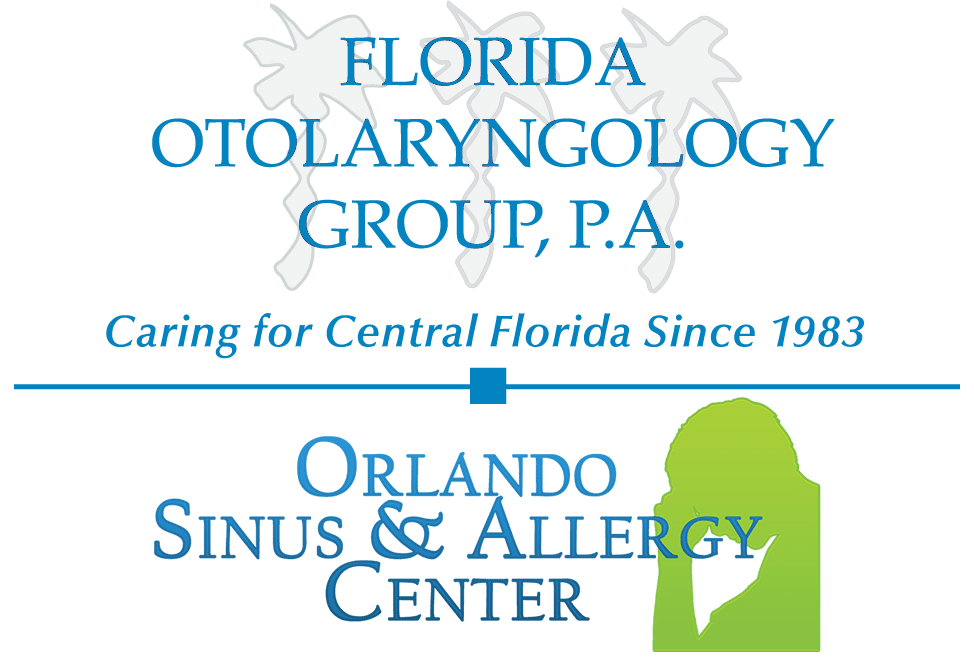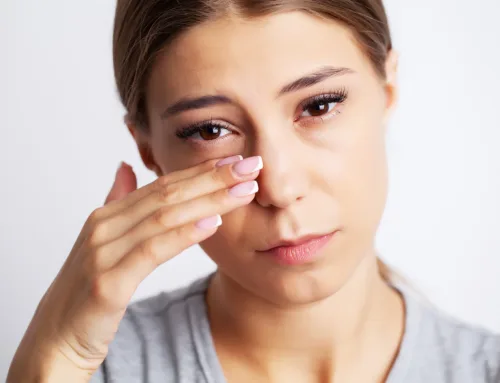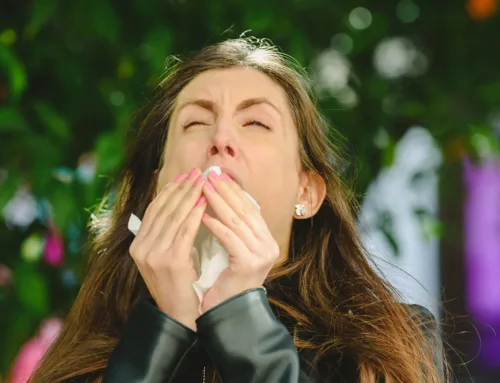Follow these 7 proven tips for better sinus health!
Sinusitis affects over 37 million people in the United States each year. Sinus infections are one of the most common reasons for a visit to a healthcare provider, and one out of five antibiotics are prescribed for sinusitis in the US.
Blockage of the channels that drain the sinuses is the main cause of this painful condition. If an ounce of prevention is worth a pound of cure, follow these 7 tips to help prevent sinus infections.
1. Moisture, Moisture, Moisture
Keeping your nose and sinuses moist is good for sinus health
Humidify Your Indoor Air
A dry climate or heated indoor air dries out your nasal membranes. Dryness can result in crusting and cracking, and as a result, mucus isn’t cleared as effectively, which may increase your risk of sinus problems.
Add humidity to your indoor air but keep it low in winter, and consider using a room humidifier in the bedroom from October until April. Your bedroom is the most important room in the house in which to keep a humidifier. Be sure to clean your humidifier daily, or it will become a source for sinus problems.
Apply a warm moist washcloth to your face several times a day. This can help open up the nasal passages. Inhale steam two to four times a day. One simple way: Sit in the bathroom with the hot shower running.
Drink Lots of Fluids
What and how much you drink can promote — or disrupt — good sinus health. Adequate hydration keeps the mucus flowing properly in your sinuses.
Drinking alcohol, especially red wine and beer, can also cause sinus pressure and congestion. Caffeinated drinks like coffee, teas, or sodas act as diuretics to increase the volume of fluids excreted by the kidneys. Avoid these beverages when you have sinus problems, and drink at least six glasses of water every day to help keep sinus mucus thin and mobile.
2. Irrigate Your Nasal Passages
Many studies show that flushing out your nose and sinuses with lukewarm saltwater can decrease sinus infections in people with chronic sinus problems.
Irrigate your nasal passages with a saline solution to remove allergens, irritants, and excess mucus. You may use over-the-counter saline sprays or kits, or make your own solution at home and use a nasal irrigation system such as a Neti pot or an 8-ounce squeeze bottle. To make your own saline mixture, combine about 16 ounces (1 pint) of lukewarm distilled water with 1 teaspoon of non-iodinated salt. Try adding 1/2 teaspoon of baking soda to buffer the solution to make it gentler on the nose. Place the mixture into a clean Neti pot or squeeze bottle. Place the spout or nozzle into your nostril and gently irrigate. The saline water will flow through your nasal cavity and out your other nostril. Blow your nose to get rid of the remaining water. Repeat the steps for your other nostril.
It’s important to note that, according to the CDC, if you are irrigating, flushing, or rinsing your sinuses, use distilled, sterile, or previously boiled water to make up the irrigation solution. It’s also important to rinse the irrigation device after each use and leave open to air dry.
3. Good Hygiene For Healthy Sinuses
Sometimes, preventing the spread of sinus problems just requires some common sense about hygiene, like covering your mouth when you sneeze or cough.
Viruses and bacteria are the most common causes of sinus infection. Pathogens may get into your sinuses through droplets coughed or sneezed into the air by people with upper respiratory infections and can also travel into your nose when you touch your hands to your face.
Avoid close contact with anyone who has an upper-respiratory infection and wash your hands frequently with soap and water to prevent introducing an infection into your sinuses or spreading infection to someone else.
4. Avoid Environmental Irritants & Allergens
Environmental Irritants
Contaminated air inside and outside your house can cause sinus problems. Pollutants and allergens may decrease the effectiveness of the mucus transport system in the nose and sinuses, which can result in swelling and congestion.
Cigarette smoke, cleaning products, hairspray, and any other material that gives off fumes are some of the common culprits. If you smoke, it’s important to quit. Avoid others who smoke, or ask them to smoke outside. On high air pollution days, stay indoors if possible.
Allergies
Controlling common allergens can help some people diminish sinus pressure and congestion. For people with allergies, allergens like dust, mold, pet dander, and pollen can all lead to sinus problems. You can cut back on allergy-related sinus problems by using an air conditioner in your house and your car during warm weather and keeping windows closed during pollen season. Make sure pets stay out of your bedroom and cover your mattress and pillows in plastic to prevent exposure to dander and dust mites. In addition, wear a mask if you are working in moist areas to protect against mold.
Should you get a HEPA air filter for your bedroom or office? That depends on what irritates your sinuses. HEPA filters are good at removing airborne particles related to dust mites, pollen, and pet dander. But allergens don’t just remain in the air. They can be found in your carpets, upholstery, and other areas. If your sinus problems are triggered by allergies, ask your doctor if a HEPA air filter makes sense for you.
5. Discover and Treat the Underlying Cause of Your Sinus Problems
Certain people are more prone to sinus problems, and if you are prone to frequent or chronic infections, it is always a good idea to find the root cause.
Anatomic issues such as narrow sinus passages or a deviated nasal septum may contribute to frequent sinus obstruction. Nasal polyps can also grow in sinus passages and block drainage.
Because one of the most common causes of sinusitis is allergic rhinitis, an important first step in prevention should be defining your allergic triggers so you can avoid those factors. In most cases, good allergy management controls the frequency and severity of sinusitis.
Sometimes underlying medical conditions may predispose to sinusitis. Certain chronic diseases such as diabetes or autoimmune diseases may affect the immune system so that the body’s natural defenses have difficulty fighting off a sinus infection. Treating the underlying condition may help prevent sinus flare-ups.
6. Prevent and Treat Sinus Problems with Medications
For some, medications can help control sinus symptoms.
Decongestants may help reduce the swelling in your nasal passages and can help ease the stuffiness and sinus pressure. Decongestants are available in nasal sprays such as oxymetazoline (Afrin, Dristan, Duramist, Zicam), or phenylephrine (Neo-Synephrine, Sinex, Rhinall, and others), and in pills such as phenylephrine (Lusonal, Sudafed PE, Sudogest PE, and others), pseudoephedrine (Aleve-D, Sudafed, Zyrtec-D, and others). Don’t use a decongestant spray for more than 3 days, and don’t use oral medicine for more than seven days. If you have high blood pressure or heart issues, check with your doctor before using decongestants.
Pain relievers and anti-inflammatory medicine available at drugstores can help ease the pain caused by sinus pressure. Be sure to read and follow the label and dosing instructions carefully. Don’t use these medications for more than 7 days in a row without consulting with your doctor.
Antihistamines may help if your sinus problems are related to allergies. Over-the-counter antihistamines include Claritin, Zyrtec, Allegra, and now Xyzal. If you have recurring allergy-related sinus problems, talk to your doctor about getting an allergy skin test. Your doctor may prescribe topical antihistamines as well in a nasal spray form.
Intranasal or oral steroids decrease inflammation (swelling) and mucus production in the lining of the nose. Nasal steroids can also treat nasal polyps that often cause obstruction. Nasal steroids are available over the counter and by prescription and include budesonide (Rhinocort), fluticasone propionate (Flonase), and Triamcinolone acetonide (Nasacort).
7. Know When To Get Help
If none of the tips in this booklet resolve your sinus symptoms, or if your symptoms persist for more than 7-14 days you should seek a health care professional.
After taking a medical history and conducting a physical examination, a health care professional should be able to diagnose whether you have acute or chronic sinusitis. They should also be able to help you discover the underlying causes of your sinus problems. For unrelenting symptoms, your healthcare provider may refer you to an otolaryngologist.
An otolaryngologist (ear, nose, and throat surgeon) is a specialist who treats chronic sinus conditions or frequent sinus infections. An otolaryngologist will be able to perform a thorough examination of your sinus anatomy with nasal endoscopy (a small scope attached to a camera that sees deep into the nasal passages).
When medical management of sinus conditions fails to treat the condition, surgery may be an option. The goal of surgery, which is performed by an otolaryngologist, is to help the sinuses drain more efficiently, therefore preventing blockages. Most people experience a better quality of life following surgery for sinusitis. There are also innovative, minimally invasive in-office procedures that help open up the sinuses via balloon sinus dilation (balloon sinuplasty).





